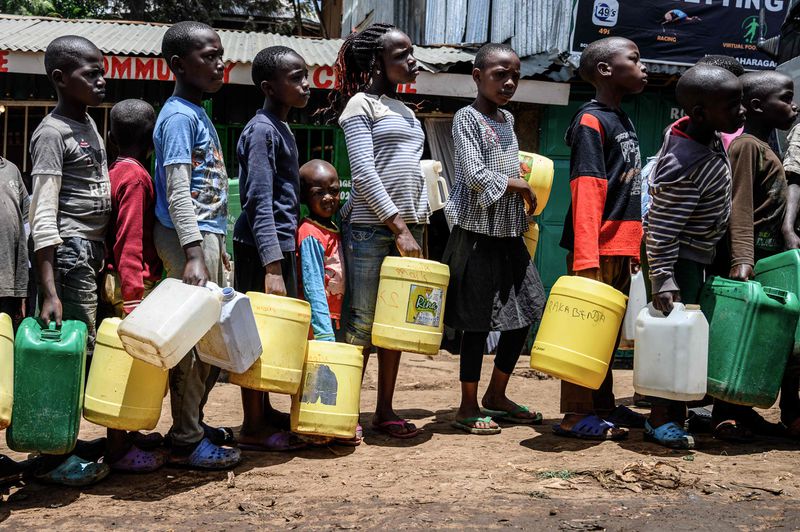As COVID-19’s death toll rises and talk of the virus seems to have dominated conversation for months, it’s hard to remember that some countries are only now facing the beginning of the pandemic’s frightening curve.
On Thursday, the Department for International Development’s Secretary of State, Anne Trevelyan, co-authored an article calling for an immediate global response to tackle COVID-19. With her counterparts from six other European countries, she stressed the importance of international aid – not only for minimising the effects of the coronavirus pandemic on countries with already fragile healthcare systems, but also for protecting our own populations.
The UK is already a key player in the world of international development. Under David Cameron, legislation was passed that committed the UK to spending 0.7% of its national income on foreign aid. We are one of the leading investors in Gavi, the Vaccine Alliance, which has immunised over 760 million children who otherwise might have died from preventable disease.
But COVID-19 poses new threats to the developing world. Oxfam’s recent research warns that half a billion people around the world will be pushed into poverty, while Gavi forecasts 12.9 million deaths in the world’s poorest countries if preventative measures aren’t taken. The sustainable development goals set by the UN in 2015, which aim to eradicate extreme poverty and provide healthcare access to all by 2030, cannot be reached if, as predicted, the virus leads to the highest levels of global poverty since 1990 – a reversal of 30 years’ worth of progress.

Funding frontline organisations will be ‘essential’ in responding to the initial effects of the virus, the article says, pledging support for the World Health Organisation alongside others such as the Global Fund, Gavi, and Unitaid. Funding WHO will support its efforts to ensure that patients get the care they need and that crucial equipment, like masks, gloves, and swabs, is provided where it’s needed.
Gavi, an initiative that has already saved over 13 million lives through routine immunisation, is funded entirely by long-term donors, and the UK contributes roughly 25% of donations. $29 million of its funding has already been approved as urgent initial funding to help developing countries in their responses to the pandemic – but this will likely rise to $200 million in the upcoming days as more and more developing countries start to report Covid-19 deaths.
Access to healthcare in developing countries is already limited: 19.4 million infants did not receive routine vaccinations in 2018, with Nigeria being one of the countries most affected. With only five hospital beds per 10,000 people and a global ranking of 187th in their overall healthcare performance by WHO, it has few resources and few systems in place to fight a pandemic. Because those with pre-existing conditions and weakened immune systems are at a far greater risk of dying from the virus, this lack of immunisation – and the nearly 2 million people living with HIV as of 2018 – could be devastating.
Of course, full vaccination can only be achieved, and essential equipment can only be bought, if countries have enough money to fund their health services. DFID’s article also called for a temporary suspension of debts owed by the poorest and most vulnerable countries, to allow governments to temporarily focus more of their spending on fighting the crisis.
According to Oxfam, a cancellation of debts in Ghana would allow the government to spend just over £16 a month on every single child, as well as all of the country’s disabled and elderly, for a period of six months. Looking at data from UN programmes to vaccinate people for measles, yellow fever, and meningitis, the average cost of vaccinating one person is just over 70 pence. The 28,000 million USD of debt that Nigeria owed by the end of 2019 could easily cover the cost of providing a vaccine.
For some organisations, a mere temporary suspension of debts is not enough: Oxfam urge that the example illustrated by Ghana can only be achieved if debts are entirely cancelled. The proposed economic rescue plan will see the liquidation of over $1 trillion in debt ‘to keep poor countries and poor communities afloat.’ Meetings with the World Bank and the G20 next week will decide whether this is reasonable, but it does seem to be prompting a re-evaluation of how we tackle foreign aid, especially in times of crisis.
The article concludes with a plea from the DFID, alongside its counterparts from Germany, Sweden, Denmark, Norway, Iceland, and Finland, that other countries ‘join this endeavour’ and ‘do their utmost to help fight the pandemic.’
Though there is huge pressure on governments at the moment to respond to the crisis in a way that will protect their own citizens, the UN Chief Economist and Assistant Secretary-General for Economic Development Elliot Harris reminds us that ‘we must not lose sight of how it is affecting the most vulnerable population.’ The burden of infectious disease has often been shouldered by the the developing world, from HIV to Ebola, and COVID-19 is a reminder of how far there is still to go.
Image: Children in Kibera, Kenya, the largest urban slum in Africa, queue for free water provided by the government to help curb the spread of coronavirus, 7th April (Gordwin Odhiambo / AFP)

